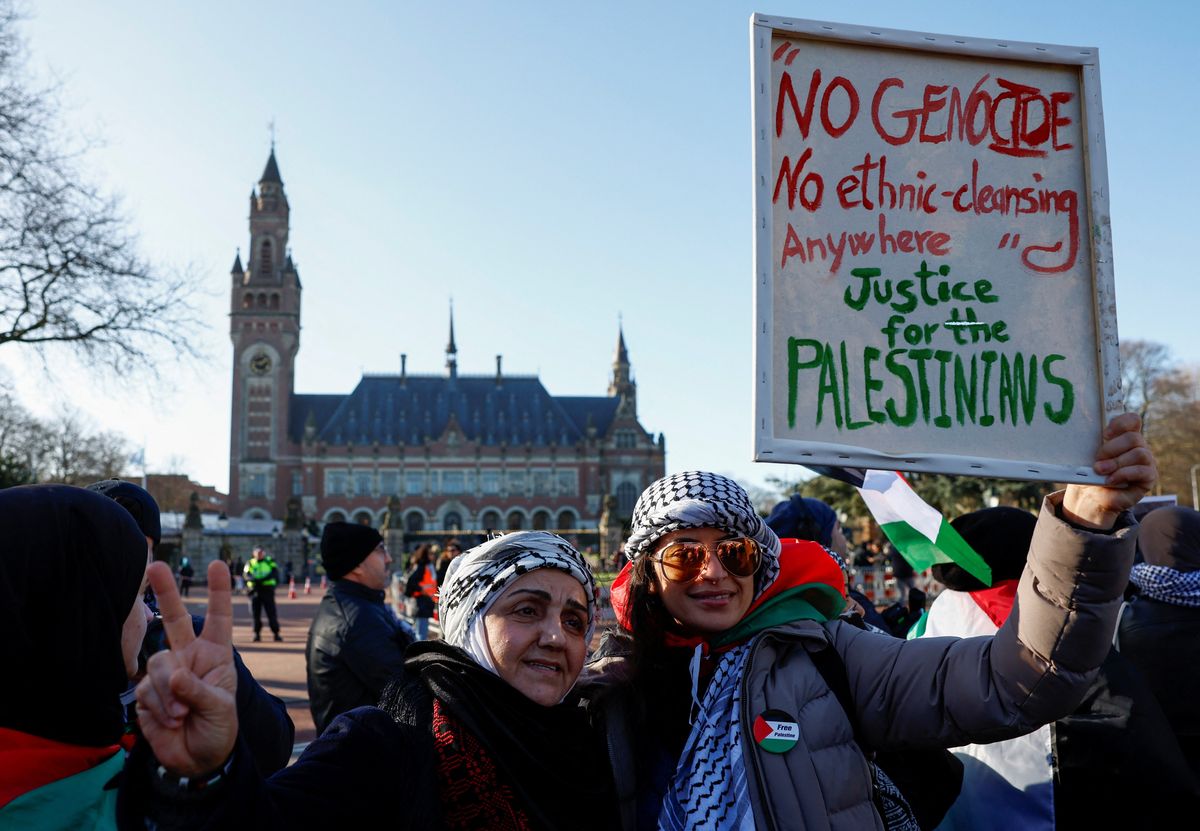The International Court of Justice on Friday gave its preliminary opinion on the South African case which alleges Israel is carrying out a genocide in Gaza. As you might expect, everyone sees in it what they wish.
The raw facts: The court found that Israel’s actions in Gaza are at least “plausibly genocidal” which means the case can continue until a verdict is reached. That could take years and will require a higher standard of proof than the current ruling.
In the meantime, the court stopped short of calling for a ceasefire, which South Africa had sought. Instead, the court ordered Israel to observe several provisional measures to prevent genocidal acts, increase humanitarian aid, and preserve evidence for the ongoing investigation.
Incompatible realities. In the view of Israeli Prime Minister Benjamin Netanyahu, who has dismissed the ICJ case as an antisemitic attack on Israel, the ruling “rejected” the genocide charge. South Africa’s foreign ministry, meanwhile, said it was a “landmark ruling” and pointed out that it was “binding.”
Who’s gonna bind it? The ICJ has no means of enforcing the ruling, which requires Israel to provide an account of its efforts to uphold the provisions within one month. The US, Israel’s biggest financial and military backer, has previously called the South African case “unfounded”.
But does Biden face a symbolic dilemma? The White House has styled itself as the defender of a “rules-based international order” under attack by “rogue states” and their allies. Washington’s support for, say, Ukraine has been framed strongly in these terms — the US has even backed Kyiv’s genocide claims against Russia at the court. To ignore the ruling of a UN court would, as one seasoned observer put it, “be a middle finger” to the international order.






